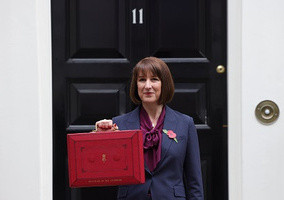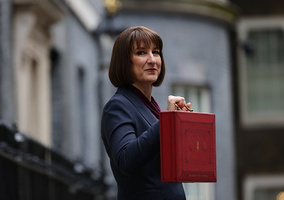More than 7,000 charities have signed a letter urging chancellor Rachel Reeves to ease the burden of an estimated extra £1.4bn per year that the sector will have to pay in employer national insurance contributions (NICs).
Reeves announced in her first budget as chancellor a fortnight ago that NICs would increase from 13.8% to 15% from April 2025 but that the employment allowance would more than double to £10,500 to shield the smallest organisations from the tax.
NCVO warned that this change would cost charities £1.4bn a year and, with fellow sector umbrella body ACEVO, wrote to Reeves explaining the impact and asking for assistance.
The letter closed to signatories last week with 7,361 charities co-signing it.
Meanwhile, the Charity Finance Group has asked charities to complete a survey about the impact that changes in the budget will have on them.
Others have written to the government separately, with 110 homelessness organisations including the CEOs of Crisis and St Mungo’s signing a letter to Reeves by Homelessness Link which warns that their sector could pay up to £60m more due to the changes.
End of life charity Marie Curie wrote to health secretary Wes Streeting that it would have to pay an additional £2.92m a year in NICs and that without further support, it would have to reduce services.
The Voluntary Organisations Disability Group, meanwhile, warned this week that disability charities will have to cut back services and hand back public contracts due to the rise.
Other private sector organisations have also urged for exemptions but the government has yet to amend the policy.
A HM Treasury spokesperson previously told Civil Society: “Our tax regime for charities, including exemption from paying business rates, is among the most generous of anywhere in the world with tax reliefs for charities and their donors, worth just over £6bn for the tax year to April 2024.
“The government will protect the smallest businesses by increasing the employment allowance to £10,500 which means that next year 865,000 employers will pay no NICs at all.”
NCVO: Middle income charities to be ‘hit hard’
NCVO’s head of marketing, comms and campaigns Leigh Brimicombe told Civil Society that his organisation expected middle-sized charities, many of which are delivering a lot of public services, to be “really hit hard” by the NICs rise.
He said: “A charity of that size taking on hundreds of thousands of pounds worth of additional costs at a minimum is going to make them look at things like a reduction of services, reducing the amount of people that they can support, or looking at their own internal structures and resourcing,” he said.
“Or they’re going to have to dip into things like their cash reserves to meet the gap in the costs. There’s lots of things and lots of big decisions that charities and their boards are going to have to look at.”
He added that while the smallest charities would be shielded from paying NICs, they may see an increase in demand as larger organisations scale back operations.
Brimicombe said there had been no direct response to NCVO and ACEVO’s letter, but that the organisations were in contact with the government over their concerns.
NCVO and ACEVO are currently working on a new “covenant” with the government, which aims to set out a “fundamental reset” of the working relationship between charities and the state.
Hospice charity raises thousands
Meanwhile, Dorothy House Hospice Care raised £370,000 in 36 hours earlier this month as the charity warned that the NICs rise would cost it £422,000 per year.
The appeal, planned before the budget, resulted in 3,180 donations through a crowdfunding platform to the charity, based in Somerset and Wiltshire.
Wayne de Leeuw, chief executive of Dorothy House Hospice Care, said: “With an aging population causing ever increasing demand for end of life care our ambition remains to ensure we are there for everyone who needs us.
“The additional national insurance cost of this scale just adds to the perfect storm facing hospices at a time when we already desperately needed more support.”











